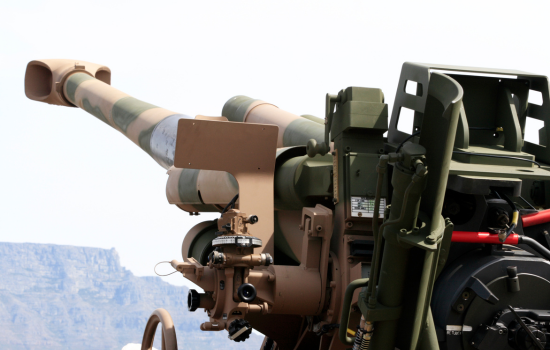Bombing of Synagogues in Istanbul: An al-Qaida Operation or a Revival of Turkish Islamist Terrorism
Background
On November 15, 2003, two nearly simultaneous carbomb attacks targeted Istanbul synagogues, killing at least 24 people and wounding more than 255. The Neve Shalom synagogue, where most of the deaths reportedly occurred, was the scene of an earlier attack in 1986, when Palestinian terrorists members of the Fatah – Revolutionary Command (better known as the Abu Nidal organization, or ANO) killed 22 worshippers and wounded six others during a Sabbath service. On March 1, 1992 Neve Shalom was the target of another attack when terrorists linked to the Turkish Hizballah group threw two grenades at the synagogue, injuring a Jewish passer-by.[1] The Turkish Hizballah is a Sunni terrorist organization not connected with the Lebanese Shi’a Hizballah, but has been supported in the 1990’s by Iran.
A caller claiming to be from a radical Turkish group, Great Eastern Islamic Raiders’ Front—also known as IBDA/C—said it carried out the attack, the Turkish Anatolia news agency reported. The caller was quoted as saying: “The reason [for the attacks] is to stop the oppression of the Muslims… Our acts will continue.” The IBDA/C carried out a series of attacks around Istanbul in the 1990’s’, but has since been largely dismantled by Turkish security forces. Turkish officials are skeptical about the claim and are examining whether foreign groups were behind the attack. “An incident of such a scale might not be just the work of a domestic organization,” said Turkish Interior Minister Abdulkadir Aksu.[2]
The al-Qaida Track
There are good reasons for al-Qaida to attack Turkey and its interests, and at this stage it seems that the target and the modus operandi point to bin Ladin’s global Islamist network as the main suspect. The primary motivation for targeting Turkish sites is its historical significance as the last survivor of the Muslim Caliphate.
Abdallah Azzam, the Palestinian ideologue of al-Qaida and Bin Ladin’s mentor in Afghanistan, wrote in his book “Al-Qa’idah Al-Sulbah” (or “The Solid Base” from which comes the name Al-Qaida): “So many people sold their country, their religion, and their people for a cheap price. For example Mustafa Kemal Ataturk who concluded an agreement with the British, allowing them to beat the four Turkish armies in Palestine, who abolished the Caliphate and fought Islam for the sake of a presidential chair. There are so many Kemalists in our nation who sold it for a piece of bread or a word of recognition or a glass or a prostitute.”[3]
Bin Ladin sees the beginning of Islam’s degradation and humiliation as result of Ataturk’s secular and republican revolution in Turkey and the disappearance of the Ottoman Empire: “Our nation has been tasting this humiliation and contempt for more than 80 years,” he stated, and compared the US humiliation after the September 11 attacks with Islam’s humiliation.[4]
Another reason for al-Qaida’s enmity towards Turkey is the essence of Turkish regime itself; Turkey is practically the only example of a successful Muslim democratic and secular nation.
Turkey is also a very close and important ally of the United States in the Middle East—a member of NATO and an active participant in the international military forces sent to stabilize the situation in Afghanistan.
Moreover, Turkey is an ally of Israel and has a strategic cooperation agreement with the Jewish state, considered one of the main enemies and targets of al-Qaida.
Last but not least, Turkey is the first Muslim country to agree—at the request of the United States—to send peacekeepers to Iraq after a vote of the Turkish parliament in October.
On October 14, a suicide bomber died in an attempted attack on the Turkish embassy in central Baghdad. The car bomb, which exploded close to the building, wounded a couple of people, but killed no one. The Turkish Prime Minister, Recep Tayyip Erdogan, dismissed suggestions that the bomb was a warning, saying that Ankara would not be deterred from sending troops.[5] However, the plan to send Turkish soldiers to Iraq has not materialized because of fierce opposition from the Kurds and the Governing Council of Iraq.
The Jews as targets
Bin Ladin and his deputy Ayaman al-Zawahiri have lumped the Jews in with the “Crusaders” (i.e. the US and all Western Christian nations) as the main enemies of Islam. This categorization was first set forth in February 1998 at the foundation of the World Islamic Front for the Struggle Against Jews and Crusaders in. However, it was only after the debacle of al-Qaida’s forces in Afghanistan in the autumn of 2001 that they began to target directly Jewish communities and interests.
The first successful al-Qaida attack after the defeat in Afghanistan was the suicide bombing using a fuel tanker on 11 April 2003, outside the ancient synagogue on the island of Djerba, Tunisia. The attack killed 14 German tourists, a French citizen, and four Tunisians. Sulaiman Abu Ghaith, al-Qaida’s spokesman, claimed the attack was carried out by a “youth [who] could not see his brothers in Palestine butchered and murdered…[while] he saw Jews cavorting in Djerba”.[6]
On 16 May 2003, an old Jewish cemetery at the heart of Casablanca’s ancient medina and a luxury hotel frequented by Israelis were targeted. The Belgian consulate was damaged in a simultaneous attack apparently aimed at a Jewish-owned Italian restaurant. Five explosions occurred within 30 minutes of each other, all triggered by 13 suicide bombers carrying explosives, killing more than 40 people. Local Islamists, including Salafiya Jihadiya, an extremist group linked ideologically to al-Qaida and groups in Algeria, were responsible for the bombings.
A Turkish connection?[7]
Islamic terrorist organizations active in Turkey during the 1990’s sought to establish an Islamic Sharia’-based state on the Iranian example. They profited from deeper social and political trends in Turkish society, and at the same time strengthened these trends by their violence. These groups enjoyed wide Iranian support and often acted on behalf of Iranian local and regional political and strategic interests.[8] However, despite the existence of some infrastructure in Europe, the Turkish Islamic groups have not attacked Western targets or acted abroad, unlike other Islamic groups and the PKK.
The Great East Islamic Raiders Front (IBDA/C)
IBDA/C is a terrorist organization that adopted the ideology of the “Great East” of Necip Fazil Kisak?rek, which calls for a federal state based on the Ottoman principles. Active since the middle of the 1970’s it has become more extremist and aggressive since the beginning of the 1990’s. Although an Islamic movement struggling for the constitution of an Islamic state, it uses leftist slogans in its publications and accepts ex-Marxists into its ranks. It is also extremely anti-Semitic and anti-Christian in its propaganda and terrorist activity. IBDA/C generally opposes all the other Islamic Movements and rejects Iranian Shiism. Its leader is Salih Izzet Erdis known by the name Salih Mirzabeyoglu. Erdis was arrested in December 1998.
The organizational structure is not hierarchic and is based on quite independent legal and illegal “fronts”. The legal fronts deal with propaganda activity, publication of books and periodicals and organization of legal meetings, conferences or exhibitions.
Usually the militants use molotov cocktails or they bomb targets such as mosques, churches, TV transmitters, newspapers buildings, Ataturk statues, taverns, banks, play lounges and tobacco shops.
In order to enhance its prestige the organization sometimes takes responsibility for actions of other organizations. IBDA/C accuses the other Islamic movements of being passive and act as provocateurs.
The leader and many of the militants of IBDA/C have been imprisoned. However, remaining groups are still active on the propaganda level.
South-Eastern Hizballah
The Turkish Hizballah is formed of different groups divided by ideological and leadership cleavages, sometimes even clashing violently between themselves.
The goal of the Hizballah groups is to destroy the constitutional regime of Turkey and to introduce an Islamic state resembling the one in Iran. In pursuit of this goal,t they adopted a three-staged strategy: “communication, community, holy war” (teblig- cemaat- jihad).
The terrorist activity of Hizballah is not detailed in the open sources. Therefore the number of attacks, of the victims and the damage involved, is not known. But what is clear from the published data is that the security authorities have waged a relentless campaign against the military and civil infrastructure of all Hizballah’s branches, considered to be the most powerful and dangerous of all the Islamist violent organizations.
Hizballah was seriously weakened after the security forces arrested more than 1000 of its militants and leaders in 1998 in Diyarbakir, Batman, Mardin, Istanbul, Van and Bingol. The leader of Hizballah, Huseyin Velioglu died in clashes with the Istanbul Police in January 2000.
The Union of Islamic Communities (UIC)
UIC was founded by a group who separated from the National Opinion Organization in 1983 and was led by Cemalettin Kaplan. UIC is still active in Germany under the name of Anatolia Federative Islamic State. UIC’s initial goal was to unite the Muslims living in Europe under one roof and to struggle against all the democratic systems and the western culture. The main goal of UIC is to establish a Federal Islamic State in Anatolia.
Cemalettin Kaplan declared himself the “caliph” of all Muslims in 1994. After his death in 1995, his son Metin Kaplan replaced him as the alleged “caliph”. Some members of the organization have rejected Metin Kaplan’s caliphate and UIC has divided into three fractions.
In Turkey, UIC’s followers are active in Istanbul, Konya, Adana, Sivas, Ayd?n and Mara?. UIC has 200-300 members in Turkey and 1300 members in Germany. The Istanbul police have discovered weapons and ammunitions caches belonging to the UIC and foiled terrorist attacks by its militants.
Metin Kaplan declared jihad against Turkey in 1999. The German authorities arrested him in March 1999 and he was sentenced to four years in prison for incitement to murder involving a rival who was killed in 1997. However, Metin Kaplan continues to lead UIC from prison. Testimony at his trial portrayed him as the leader of a sect who followed Islamic sharia law, sent money to help Muslim fighters in Afghanistan, Bosnia and Chechnya and conducted regular military exercises.
UIC as a potential ally of al-Qaida
The UIC seems the best Turkish candidate to join the al-Qaida network.
Three years before the Sept. 11 attacks, the group plotted an audacious suicide attack on Ataturk’s mausoleum in Ankara, the pride of Turkish nationalism. The plan was to crash a private airplane packed with explosives into the hilltop shrine just as hundreds of Turkish political figures, dignitaries, generals and foreign ambassadors rose to mark the 75th anniversary of secular Turkey by honoring its founder. Turkish intelligence authorities foiled the scheme, and 18 people were later convicted.
According to intelligence officials in Turkey and Germany, a delegation from the organization, known as the Kaplan Group and made up mostly of Turks living in Germany, met with Bin Ladin in Afghanistan the year before the planned attack in Ankara and later sent people there for training.
Turkey’s interior minister, said in an interview that ‘Turkish names found in raids on Bin Ladin camps correspond with membership rolls of the Kaplan Group.’ Intelligence reports indicated that group members were among 14 Turks detained as Al Qaida fighters in Afghanistan.[9]
Conclusion
At this stage it seems that the suicide car bombings in Istanbul were the work of the al-Qaida network and had as main goals: to destabilize the Turkish secular regime and moderate Islamic government, to shake the Turkish alliance with the West and Israel and to target at the same time the Jewish community in Turkey and through it Israel itself.
It should be noted that all the suicide attacks by al-Qaida affiliated groups since the war in Afghanistan (except those in Saudi Arabia), in Bali, Djerba, Mombassa, Casablanca and now Istanbul, have targeted ‘soft’ objectives in predominantly Muslim communities which make their living on tourism. As most of the people killed are Muslims, it seems that the main goal of these attacks is to destabilize the local moderate governments, to threaten the tourist industry and thus bring psychological fear and economic havoc to the countries involved.
It cannot be excluded that Turkish Islamist individuals were involved in the attacks as members of the al-Qaida network
However, if one of the Turkish Islamist groups which have been active in the past and were weakened or neutralized by the relentless activity of the Turkish security forces, emerges to be behind this murderous terrorist attack, then the implications for the internal situation in Turkey could be more significant.
Notes:
1. See Antisemitism and Xenophobia Today/AXT, website of The Institute for Jewish Policy Research (JPR), London, at






